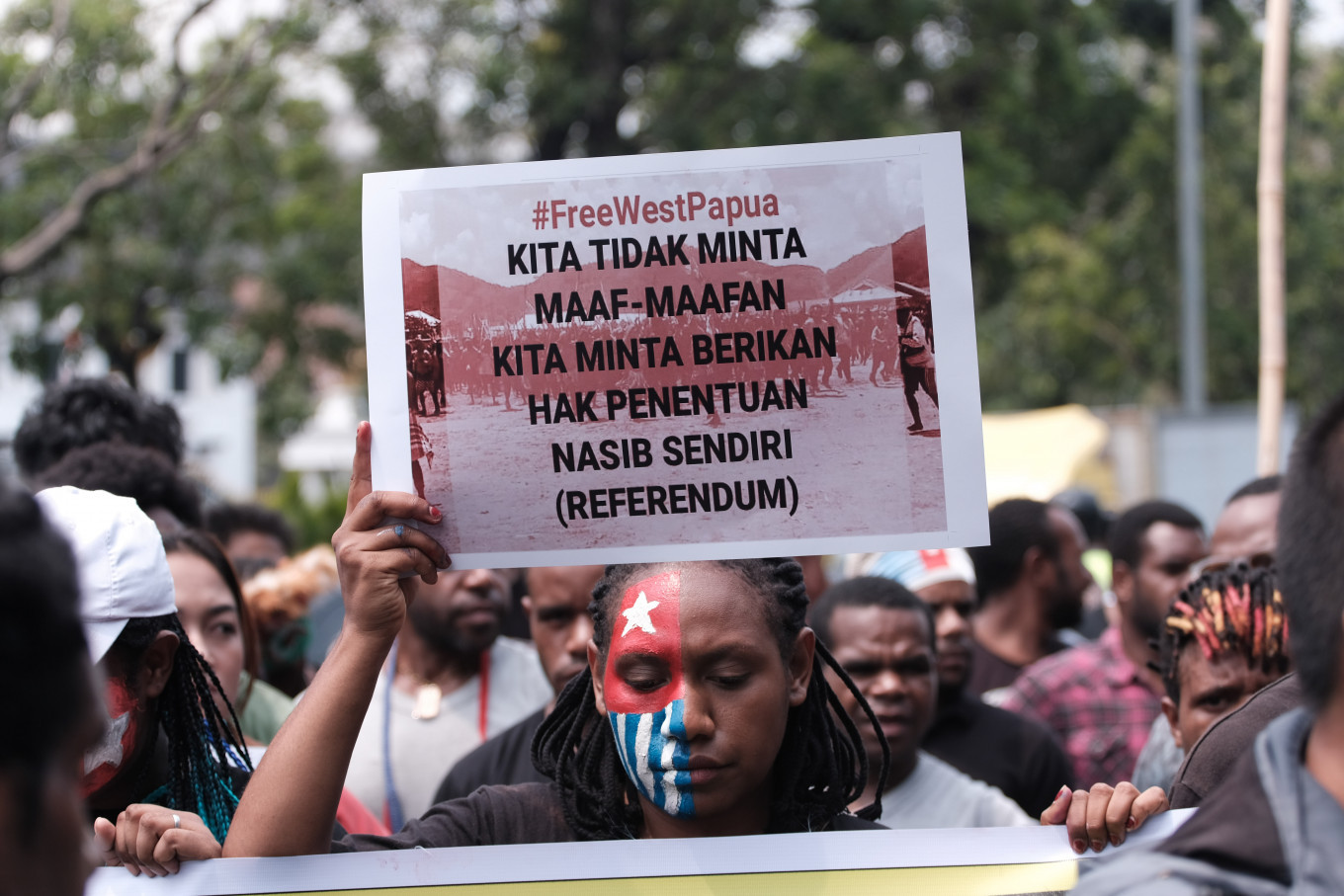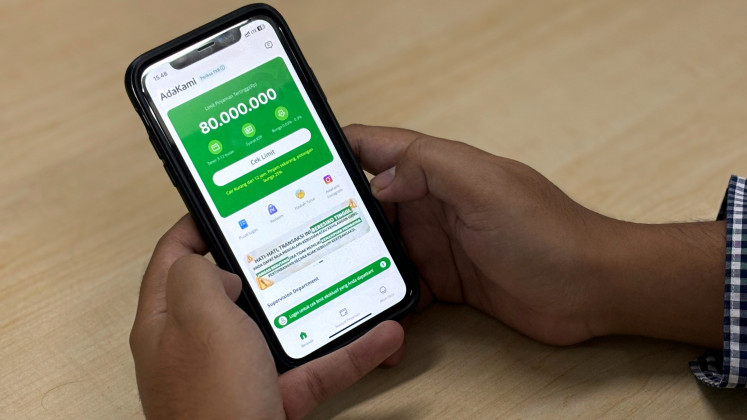Popular Reads
Top Results
Can't find what you're looking for?
View all search resultsPopular Reads
Top Results
Can't find what you're looking for?
View all search resultsPapuan lives matter: George Floyd and colorism in Indonesia
With the recent death of George Floyd and the uprising of the Black Lives Matter movement, now, more than ever, is a time to reevaluate Indonesia’s own racism and colorism.
Change text size
Gift Premium Articles
to Anyone
T
here are often mean jokes made about Papuans. One day, someone told me, “You’re beautiful, like a Papuan!” and then laughed hysterically. What he implied was that Papuan people are not beautiful.
It is common for someone to equate beauty with having light skin and a pointed nose, like Europeans. What has shaped such a mindset? Was it the years of colonialism in our past? Has it been instilled in us that Caucasian features are superior because of the hundreds of years that they forced us to crane our heads up toward them, belittled and ashamed?
Sadly, this is a mindset ingrained into many people in Indonesia, perhaps even throughout Asia. Is it not true that saying to someone, “Oh, you’ve gotten whiter!” is a compliment in this country? And isn’t saying, “Oh, you’ve gotten darker!” offensive to us? The “well-intentioned” commenter of your darkening skin color would then recommend you some whitening products, or to stay out of the sun.
Besides existing in the way we speak to each other, colorism is interweaved into the fabric of our society. It exists in the beauty products, all advertised to “lighten your complexion”. It exists in the way we powder kids until their brown face becomes gray. It exists in the fact that so many of the faces on television, such as actors and news anchors, are light-skinned.
With the recent death of George Floyd and the uprising of the Black Lives Matter movement, now, more than ever, is a time to reevaluate Indonesia’s own racism and colorism. It would be a shame if we were to be abhorred by the situation in the United States, but remain blind to what happens in our country.
In August 2019, for example, a dormitory of Papuan university students in Surabaya was sieged by police, who thought that they had ripped the Indonesian flag. Yet, the police did not investigate further and lacked proof of the students’ guilt. When the police sieged the dorm, they insulted the students with racist comments and attacked them with tear gas. Is it not disappointing that the police, who should know the law better than any average person, were the ones who performed vigilantism?
This event led to a riot that caused at least 33 deaths and the displacement of “at least 8,000 indigenous Papuans and other Indonesians,” according to the NGO Human Rights Watch. Since then, more police have been deployed to Papua. Yet, this case is only one of many in a history of abuses toward Papuans, including the killings of Papuans in Enarotali in 2015 and in Wamena in 2012. Violence is often met with violence, just like what is happening in the US.
Perhaps we need to think from a different point of view, that violence stems from fear. The Papuans rioted because they feared discrimination for what should be their rights: a just legal system and equal treatment to that of other Indonesians.
Then, what caused police violence against the students? Was it also fear? If so, then fear from what? Was it fear of a large group of people based on misconstrued stereotypes? If so, then this fear will only perpetuate a cycle, a self-fulfilling prophecy. Because when we behave toward someone as if they are harsh, then that person will indeed act harshly to us due to our mistreatment of them.
Papua is also underdeveloped, particularly in education and health facilities. According to Statistics Indonesia (BPS), the percentage of libraries to schools is less than 40 percent in Papua, whereas in other provinces it is over 50 percent. Furthermore, school participation was the lowest among all provinces in 2017, at 80.69 percent. Papua also had the highest rate of poverty in Indonesia in 2018, at 27.43 percent, compared to Jakarta’s 3.55 percent.
We might feel that these problems, and the issue of ensuring development nationwide, are just those of the government. This kind of thinking is partly due to the privilege of being born non-Papuan. The plight of Papua is only the manifestation of its harsh history and its mistreatment by others, not because Papuans are “backward”, as many think. In that case, the grievances of Papuans should concern us all, since their history is also our history – the common result of the “divide and conquer” rule of the colonizers.
Thus, while the US’ social and political situation is important, one must remember the institutional and personal forms of racism in one’s own country. Perhaps a call to reform of the security sector is needed to prevent future abuses, and for justice for the ones who have died in the struggle against impunity and injustice. Without the guarantee of safety from those who are meant to maintain peace – that is, the police and military – violence will likely continue.
Mostly, it is important to reflect on how racism and colorism occur in our daily lives, and take steps to having relevant conversations and learning how to dismantle those views. All races and colors are beautiful. All traditions are valuable. Let’s remember our unity in our diversity. Our Bhinneka Tunggal Ika.
***
Middlebury College, Vermont, United States, majoring in anthropology










